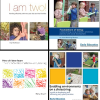Branch funds are held in the main Early Education bank accounts to reduce the financial administration burden on branches and simplify the process of annual reporting. This also ensures financial transactions are conducted in accordance with our financial controls procedures.
Each branch’s finances are separately coded on our finance system so that branch’s income, expenditure and balance of funds can be easily identified and reported on. Although the funds technically all belong to the overarching charity, the money is held as “designated funds” and branches decide how to spend their funds and should budget to ensure that they cover any costs associated with their events.
Head office provides quarterly financial reports to branches and can provide summary financial data for branch income and expenditure on request.
Bookings and payments for branch events are taken centrally. If branches wish to, they make take payments on the door and remit the payments to head office. Payments can be made at any NatWest, RBS or Ulster Bank into the main Early Education bank account (details available from the office on request), then send us a scanned copy of the paying-in receipt so we can allocate the funds to the correct branch code.
Branches should forward invoices to head office for any speaker fees and expenses to be paid, with confirmation that they have been approved by the branch. Any expenditure by branch officers for branch-related business can be reclaimed by submitting a Branch Expenses Claim Form approved by another officer from the branch.
Accounts
Early Education is accountable for all financial matters in branches. Charity law requires Early Education to be able to report on any residual funds branches hold in their own bank account, so the branch must keep accurate accounts and report annually to head office a simple income and expenditure account showing a credit or deficit balance.
If a branch still holds its own funds, a responsible person, not related to any branch officer, should check the branch accounts and sign to say they have done so. This is not a formal audit and does not need to be carried out by an accountant. It could be done by someone with experience of finance matters such as a school business manager.
In the interests of transparency, the accounts must be presented either at the branch Annual General Meeting or at a committee meeting, if no AGM is held. To be incorporated in the national audit, audited branch accounts must be sent to Early Education’s head office by 31 May each year.
An electronic income and expenditure pro forma is provided.
In the event of a branch closure the bank account should be closed and the balance of funds returned to Early Education with a final audited account. The balance of funds can then be used to support the work of Early Education, including other branches.
National income is generated through membership fees and donations, sale of publications, conferences and grants from funding bodies to support Early Education’s work. The income must cover the cost of running central office, supporting members, committee expenses and providing information, publications and resources. The annual membership subscription is agreed by the Board of Trustees and includes membership of branches, who receive an annual rebate towards their costs.
Fees for attending branch events – Income will mainly come from fees charged for branch events. Non-members’ entrance fees to branch events must be set at a rate that will make it advantageous to become a member.
When setting fees for a conference or event, it is helpful to put together a budget. Estimate any conference costs carefully; hire of premises, fees and expenses of speakers, printing, publicity and refreshments. Divide these costs between the estimated number of participants. Under, rather than over-estimate the number of participants, as profits are easy to use but losses are very difficult to absorb.
Start up grant – Branches may be eligible for a small start up grant to contribute to the costs of starting a new branch or may receive help in kind with sourcing speakers and planning the event.
Branch rebate – Dependent on national finances, branches usually receive an annual rebate for every local member, in recognition of the reduced rates members’ enjoy when they attend branch events.
Grants and donations – Branches may be able to obtain local grants and donations. Some branches are supported by their local authority early years team, or by local companies. Branches may also be able to apply for funding for local events and activities from organisations such as the Big Lottery Fund
Other fundraising activities are at local branch or regional discretion. The staff at central office can advise branches and regions on fundraising opportunities.
The branch committee should set a budget for their planned activities for the year. This will include such things as:
Meetings of branch officers with head office staff and trustees will normally be online. If face to face meetings are held, Early Education will cover all reasonable and essential expenses which are necessary to enable branch and regional representatives to attend regional meetings, provided they are cleared in advance. In order to ensure that best use is made of Early Education resources and that all Early Education expenditure is controlled, all ticket purchases should be based on cost effectiveness and value for money and the most economical forms of transport should be used.
All receipts with claims for travel expenses should be sent to central office.
Branch funds should be used to benefit members, for example by supporting a branch member to represent the branch at a national event. It is recommended that branches do not build up large reserves. Where branch accounts are over £2000 the branch could plan a special event or regional conference or transfer funds to Early Education’s central funds where it can be used to support the organisation’s general activities.






Early Education
2 Victoria Square
St Albans
AL1 3TF
T: 01727 884925
E: office@early-education.org.uk